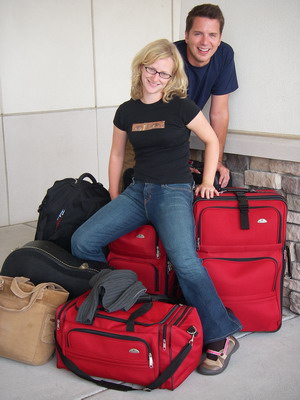
On the coast, with a cool southerly breeze blowing inland from the Mediterranean Sea, Alexandria was a welcome relief from Cairo’s complete insanity. The city was an international hub in antiquity, with beautiful marble-paved roads, golden palaces and the most famous university and library in the ancient world; its decline began with the destruction of the library in the Ptolemaic dynastic wars (around 48 BC; Christian mobs finished the job with some book burning in 293 AD), and most of its glorious buildings sank into the Eastern Harbor or collapsed and were buried. Alexandria was once again raised to the status of a great city in the early 19th century, when Muhammed Ali revived it as the seat of the royal palace and Egypt’s most important port. It attracted merchants, entrepreneurs, artists, writers and drifters from everywhere in the world, and gained a reputation as a place of decadence and romance which was cemented by its prominent role in English, French, Greek and Arabic literature in the nineteenth and twentieth centuries. Lawrence Durrell’s The Alexandria Quartet and Constantine Cavafy’s poetry (made famous in the English-speaking world by E.M. Forster’s praise in his guide to Alexandria) were perhaps the ultimate representation of the decadence of the city, which Durrell described as “princess and whore, royal city and anus mundi.” The character of Alexandria changed dramatically with the mass flight of foreign residents after the revolution of 1952, leaving the shells of their grand buildings, cafes, shops and churches behind.

We arrived under cover of darkness and could only see the sweep of the city lights around the Eastern Harbor from our Corniche-side pension room. The hotel itself was reminiscent of the European era, with a large sitting room full of forties-style curving furniture, Art Deco flourishes in the masonry and stuffed birds everywhere. We ate some pseudo-French food at a café near Durrell’s old neighborhood, then retired for drinks and a little post-colonial-fantasy-indulging at the famous Hotel Cecil, where Durrell, George Bernard Shaw and Somerset Maugham all stayed and where the British plotted their strategy for the El Alamein battle of 1942, which turned the tide for the Allies in the Middle East. It was nearly empty, with a few friends of the lounge singer encouraging her with some rather desultory claps.

The next day, we wandered around the city, observing the peeling paint and crumbling facades of the once-grand European-style mansions throughout the downtown. The Anglican Church of St. Mark now has a mainly Sudanese congregation; the Frank Square, once the hub of European social activity, has been renamed Midan Tahrir (Liberation Square), though it still boasts its grand statue of Muhammed Ali in the center. The Roman theater, a small but remarkably elegant one carved from beautiful golden marble, and some foundations (possibly of the ancient university) are the only downtown reminders of Alexandria’s classical splendor. We had some truly dreadful crepes - and, to be fair, some really great mango juice - at the legendary Trianon, a European-style patisserie and an Alexandria institution for its numerous associations with artists and writers and its grand, soaring carved wooden décor.



A stroll down the Corniche led us to Alexandria’s most recent attempt at grandeur, the new bibliotech. Intended to be the modern equivalent of Alex’s tremendous library of antiquity, an international repository of learning and knowledge, its round mass of reading rooms rises from a pool of water by the harbor in a manner intended to represent the rising sun and is decorated on the other side with carvings from every known language. It’s equally impressive inside, and we were treated to a tour which elucidated not only the principles of its architecture but also its numerous international digitization projects.
After a quick siesta, we ended our day at Cap D’Or, that rare Middle Eastern watering hole that caters to the local drinker. We feasted on salty grilled sardines, tahina and salad, French fried potatoes dressed with salt, pepper and cumin and grilled calamari with peppers and onions, and watched with admiration as men snuck bottles of beer wrapped in newspaper under their jackets and out into the street.
A (tres romantique) sleeper car on an overnight train should have us south of Cairo to Luxor by breakfast, for a couple of days in the company of the pharaohs.







No comments:
Post a Comment